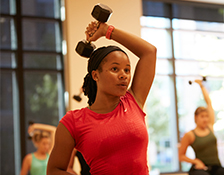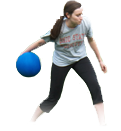
Regular exercise can reduce the risk of severe outcomes for COVID-19, says study
People who exercise regularly have a better chance of surviving COVID-19 compared to those who move less, according to a new study.

The April 7 research, published in the British Journal of Sports Medicine, found that COVID-19 patients who regularly exercise, compared to people who are consistently inactive, have a lower chance of being hospitalized, requiring ICU care and dying from the coronavirus.
Doctors at Kaiser Permanente Southern California, who led the study, included 48,440 subjects who were diagnosed with COVID-19 between January 2020 and October 2020 and asked them how often they’d exercised over the previous two years. They measured answers by the Exercise Vital Sign, a standard that identifies whether people are meeting the government’s Physical Activity Guidelines for Americans. The most recent version, updated in 2018, recommends that on a weekly basis, adults do 150 minutes to 300 minutes of moderate-intensity exercise or 75 minutes to 150 minutes of vigorous-intensity exercise, with additional guidelines for strength training.
These are the main findings:
- People who were “consistently inactive,” meaning they exercised anywhere from zero to 10 minutes per week, had a 2.26 greater chance of hospitalization, a 1.73 greater chance of ICU admission and 2.49 greater odds of death from COVID-19 compared to patients who were consistently active.
- People who did “some activity,” which equaled anywhere from 11 to 149 minutes per week, had a 1.89 greater chance of hospitalization, a 1.58 greater chance of ICU admission and a 1.88 times greater chance of death than those who were consistently active.
“We’ve known from years of studies that exercise enhances immune function and [improves] mental health,” Robert E. Sallis, a family and sports medicine physician at the Kaiser Permanente Fontana Medical Center, tells Yahoo Life. “Even beyond that, when you look at the Centers for Disease Control and Prevention’s risk factors for COVID-19 — diabetes, heart disease and more — all, for the most part, could be helped with regular physical activity.”
He adds, “It doesn’t take a lot of activity — 30 minutes of walking, five times a week.”
And little spurts of action help. “You can break up movement in lots of ways and the [weekly] benefits appear to be equivalent,” says Sallis. “[In theory], even if you got all your weekly movement in one day, that’s still a pretty good benefit, although your risk of injury increases.”
In December, another study published in the British Journal of Sports Medicine confirmed that people who move 11 minutes per day and sit for less than 8.5 hours per day slash their risk of premature death. “I think an important message here is that there are many different ways to get at lowering your health risk in terms of movement,” study co-author Keith Diaz, a certified exercise physiologist and assistant professor of behavioral medicine at Columbia University, told Fast Company.
Sallis hopes the findings are “an actionable clear message” that empowers the public. “We’re not saying, ‘Don’t wear a mask’ or ‘You don’t need the vaccine,’” he says. “But exercise is the single best thing you can do to improve your chances of [surviving] COVID-19.”
Elise Solé




